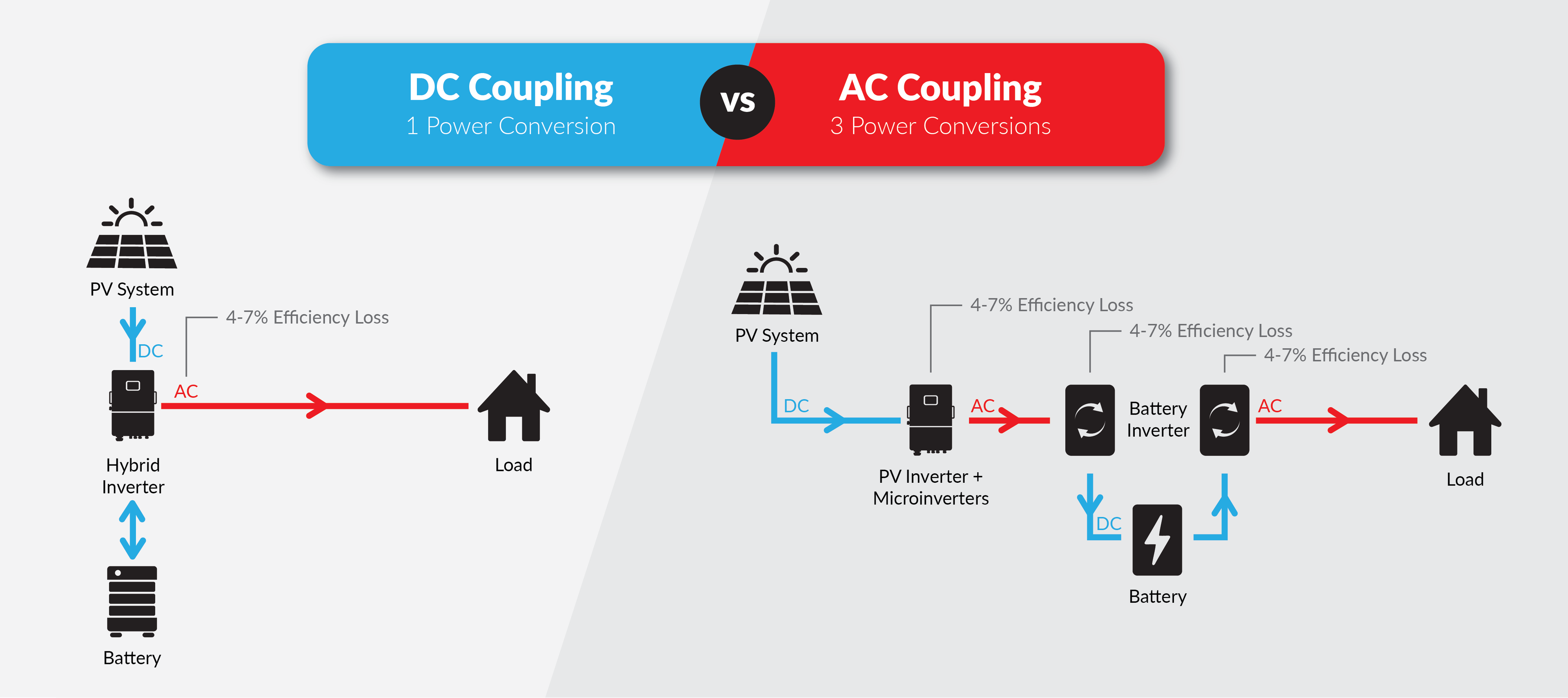AC vs DC Home Batteries: Optimize Your Solar Set-Up

When optimizing energy storage solutions for hybrid inverters, the distinction between direct current (DC) and alternating current (AC) coupling is pivotal. This differentiation critically influences the system's efficiency, cost-effectiveness, and overall performance, especially for residential energy storage applications. DC coupling stands out for its advantages in efficiency and system simplicity.
Understanding DC Power in Energy Storage
DC power flows in a single direction and maintains constant polarity, making it highly suitable for energy storage systems. It's the preferred choice for integrating with sources like batteries, solar panels, and fuel cells due to its stability and compatibility with various applications, including electronic devices, communication systems, and transportation.
The Role of AC Power in Energy Systems
Contrastingly, AC power oscillates, shifting between positive and negative polarities. This feature is advantageous for transmitting power over long distances, allowing easy voltage transformation. Despite its prevalence in residential and industrial settings, converting AC to DC for energy storage introduces inefficiencies and complexities.
Efficiency Considerations with AC Coupled Energy Storage
AC coupling in residential energy storage systems results in efficiency losses during the conversion from AC to DC for battery charging. These losses, resulting from resistance and impedance, can significantly reduce system efficiency. Reports indicate a 13-28% efficiency loss in AC systems, as opposed to a mere 4% in DC systems, highlighting a critical advantage of DC coupling in enhancing energy storage efficiency.
System Complexity and Cost with AC Coupling
Moreover, AC coupling requires additional components like transformers, microinverters, and rectifiers for electricity conversion and regulation. These elements not only add to the system's complexity and cost but also demand maintenance, further impacting the efficiency and operational cost of AC-coupled energy storage systems.
Impact on Power Availability and Charging Times
For efficient power storage, as is needed in solar-powered homes or off-grid setups, AC coupling may lead to longer battery charging times and limited power availability. The inefficiencies inherent in converting AC to DC for battery charging contribute to slower charging rates and diminished power output, potentially hindering the adoption of AC-coupled systems where rapid charging and high power availability are crucial.
The Advantages of DC Coupling for Energy Storage
DC coupling emerges as a superior choice for residential energy storage, offering reduced efficiency losses, simplified system architecture, and enhanced power availability. As the demand for efficient, reliable, and cost-effective renewable energy storage solutions grows, the shift towards DC coupling is likely to accelerate, driving innovation and shaping the future of residential energy systems. It also provides greater flexibility to add distributed generation resources, making it easier and cost-effective to scale up.